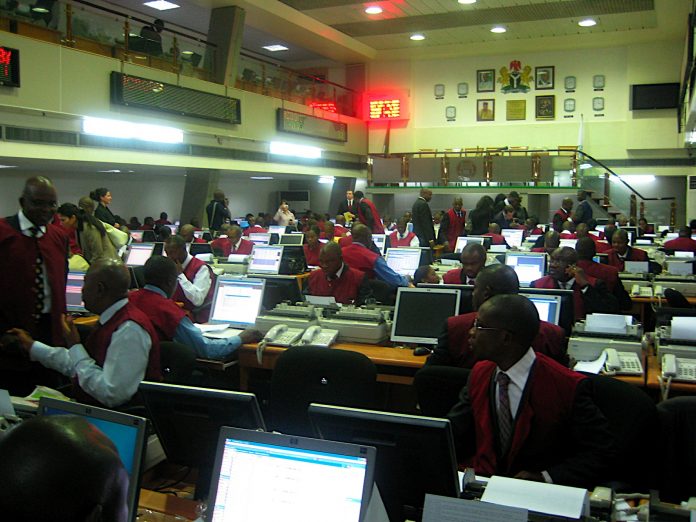The Nigerian Stock Exchange, Africa’s largest by volume traded, and MSCI Inc., a provider of investment decision support tools to asset managers, banks, hedge funds and pension funds worldwide, agreed to jointly develop and market a co-branded family of indexes for Nigeria’s equity markets. The new indexes likely will be launched later this year.
The NSE/MSCI agreement comes amid growing interest in African capital markets. In a recent report on African initial public offerings, PricewaterhouseCoopers notes that the amount of capital raised on African exchanges in 2014 totaled more than $11 billion, up over 100 percent from the previous year, and the number of IPOs and further offers increased from 60 in 2013 to 84 in 2014.
Under the agreement, existing and future indexes will be co-branded as the MSCI/NSE Indexes. These will include the flagship NSE 30 Index and NSE 50 Index, which will become the MSCI/NSE 30 Index and the MSCI/NSE 50 Index, respectively. MSCI will be responsible for the construction, maintenance and dissemination of the new MSCI/NSE indexes, which will be made available in both Nigerian naira and US dollars.
Additional indexes will be jointly developed and launched based on client demand and market development. In the same vein, other currency versions may be made available based on client demand.
“Our collaboration provides the global investing public, listed companies and other stakeholders in the Nigerian market access to MSCI’s high quality products and internationally recognized brand,” NSE CEO Oscar N. Onyema said. “The Nigerian Stock Exchange, in cooperation with MSCI, will continue to innovate and bring products to market that will increase the sophistication of African markets, and continue to establish Nigeria as the market for entrepreneurial growth.”
As of December 31, 2014, 437.4 million shares on average traded daily on the NSE. The exchange’s total market capitalization is US$ 90.67 billion with 253 listed securities.
Scant listings and light trading volumes rank among the biggest challenges for public investors in Africa, according to California-based Africa Capital Group LLC. However, “as investors on the continent’s local stock exchanges, we believe the growing interest in private equity opportunities on the continent will lead to more IPOs and more liquid markets,” says Peter C. Thomas, CFA, the group’s founder and portfolio manager.
“On multiple fronts, there is evidence that ever more capital is finding its way to Africa and that the capital market infrastructure is continuing to expand across the continent. Africa-focused private equity funds raised $2.3 billion in 2012, $3.3 billion in 2013, and over $4 billion in 2014,” he said in a February article on the firm’s website.
The NSE/MSCI collaboration attests to the continent’s capital market infrastructure expansion and global investor interest.
“As the largest economy in Africa, Nigeria is increasingly positioning itself at the center of the development of the region’s capital markets,” says Baer Pettit, managing director and head of MSCI’s Product Group. “The combination of MSCI’s emerging and frontier markets index expertise and NSE’s position as one of the leading exchanges in the region will, we believe, deliver high quality indexes for both international and domestic investors.”
The NSE’s collaboration with MSCI not only will enhance existing NSE indexes, bringing them more in line with the globally accepted index construction and maintenance standards that MSCI uses to calculate the MSCI global equity indexes, but it also will provide greater visibility for Nigeria’s capital markets as MSCI commercializes the new indexes globally. On the home front, the NSE will leverage the improvements and increased visibility in marketing the new indexes to attract more managers of funds and more companies from different industry sectors to the market.
Both sides hail their new relationship as a winning combination, not just for themselves, but also for users of the indexes, both inside and outside of the Nigeria market.
“What primarily drives MSCI’s decision to engage in a project like this is the opportunity to collaborate on a project where both parties bring unique value propositions to the table,” MSCI said in formal statement. “MSCI has always played an important role in helping international investors view the global equity markets and has a particularly long and successful track record of providing the tools and services that help investors understand the emerging and frontier markets. The Nigerian Stock Exchange operates within the largest economy in Africa and at the heart of a region in which international investor interest is increasingly growing.”
Nigeria currently is one of the 24 countries covered in the MSCI Frontier Markets Index, both as a country index for the Nigerian equity markets and through the inclusion of Nigerian equities in regional indexes. The MSCI Nigeria Index will remain separate from the new MSCI/NSE indexes.
The NSE’s agreement with MSCI does not prevent it from developing and maintaining other proprietary indexes or indexes with other third parties.













